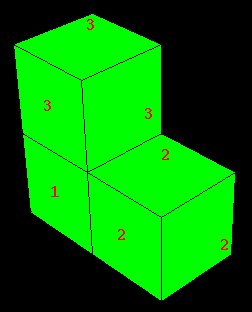Customizing element labels | ||||
|
| |||
Context:

Element labels are plot state–independent; that is, you set them once for all undeformed, deformed, contour, symbol, and material orientation plots. You can also set the element labels that Abaqus/CAE will display on the undeformed shape when the deformed shape is superimposed on it. Toggle Show element labels to display or suppress element labels and to choose their color.
 .
.